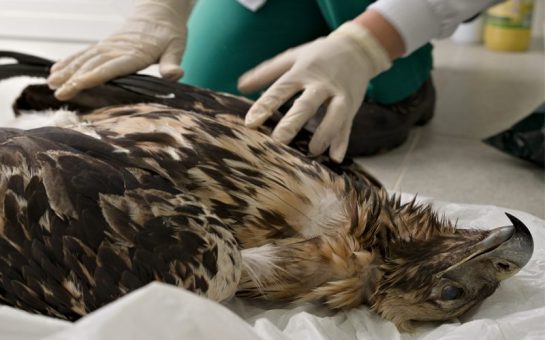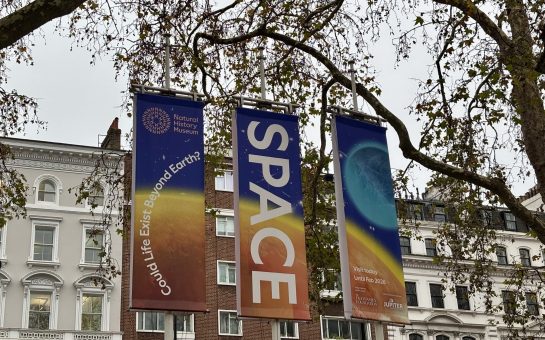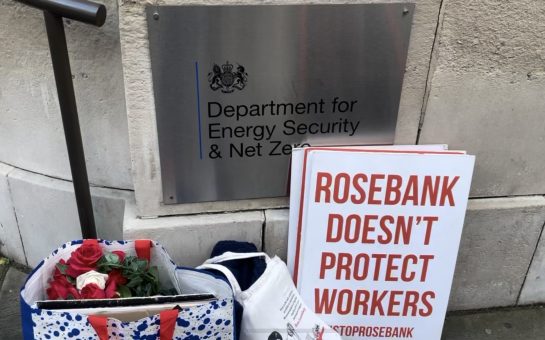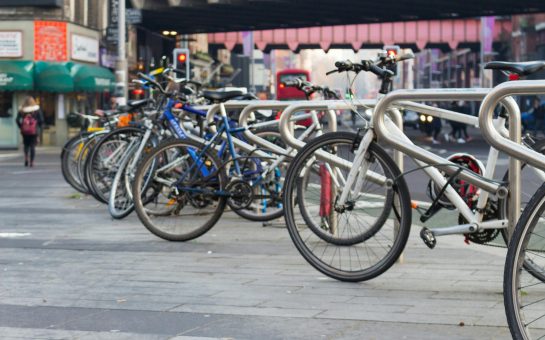The Herbarium at Kew Gardens, the world’s largest collection of plant and fungal specimens, will be digitised in an effort to revolutionise climate change research.
This investment was confirmed by Chief Secretary to the Treasury, Simon Clarke, during a visit to the gardens.
It also comes at the end of the opening week of COP26.
The digitisation project, estimated to take four years, will protect the treasure trove the Herbarium holds from deterioration and enable researchers from across the world to access its historic collection free of charge.
Director of Kew Gardens, Richard Deverell, told SWL: “I think the two biggest challenges facing humanity in the 21st century are the climate crisis on the one hand and the extinction crisis, the loss of nature, on the other.
“And they are linked, they’re almost like two sides of the same coin.”
He added that Kew Gardens’ area of interest is nature-based solutions: using nature to mitigate the climate crisis and protect Earth’s biological diversity.
“Finding solutions to these challenges – that’s what we’re applying our science to. And that’s why the digitisation matters, because it releases valuable information,” he said.
Around 350 scientists are employed to work on these solutions, in what Deverell emphasises is an international effort.
“It’s completely global. Kew’s collections come from pretty much every tropical country around the world. They’ve been painstakingly collected over 170 or so years.
“They’re a tool for scientists and conservationists all around the world.”
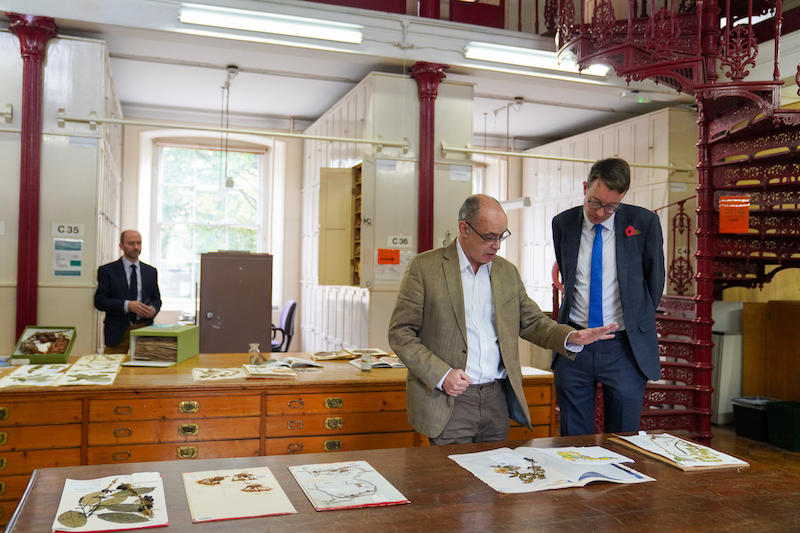
Deverell noted that the advantages of the digitisation are twofold.
For one, it liberates information so that scientists from nations without the same resources can access it.
Secondly, due to the massive inventory of plant life at Kew Gardens – around 7.5 million specimens, it creates a large data set that scientists can interrogate to see how patterns and plant distribution have changed over time.
One example of research by Kew scientists highlighted by Deverell was their help in rediscovering a lost variety of coffee.
This variety can withstand much higher temperatures than the popular Arabica coffee, which is suffering because it is less climate tolerant.
MP Simon Clarke, Chief Secretary to the Treasury, supported the benefits of this project: “This vital investment will revolutionise research to combat climate change and biodiversity loss.
“By digitising this unique collection, the largest of plant and fungal specimens in the world, we are opening up a vast stockpile of data which will seed a forest of vital research projects across the planet.”
Dr Aaron Davis, Senior research leader in the Crops and Global Change team at Kew Gardens added: “The collections at Kew are a global resource that help us to understand what is happening to our biodiversity, how climate change is affecting nature and what we are losing.
“It was assembled by partners across the world so it is therefore only right that we speed up the process of digitising this data for everyone to use now in tackling species loss and ensuring we are making good choices that are sustainable for people and planet.”
Despite acknowledging how significant this investment is for Kew Gardens, Deverell noted that much more still needs to be done.
He said: “The government funding is fantastically valuable to us but we still need to find the remaining funding to digitise the full collection.
The government funding will enable us to digitise a chunk of it, but we need to find the funding to finish off the job.”
If you are interested in seeing how you can support Kew Gardens, please use: https://www.kew.org/join-and-support.
